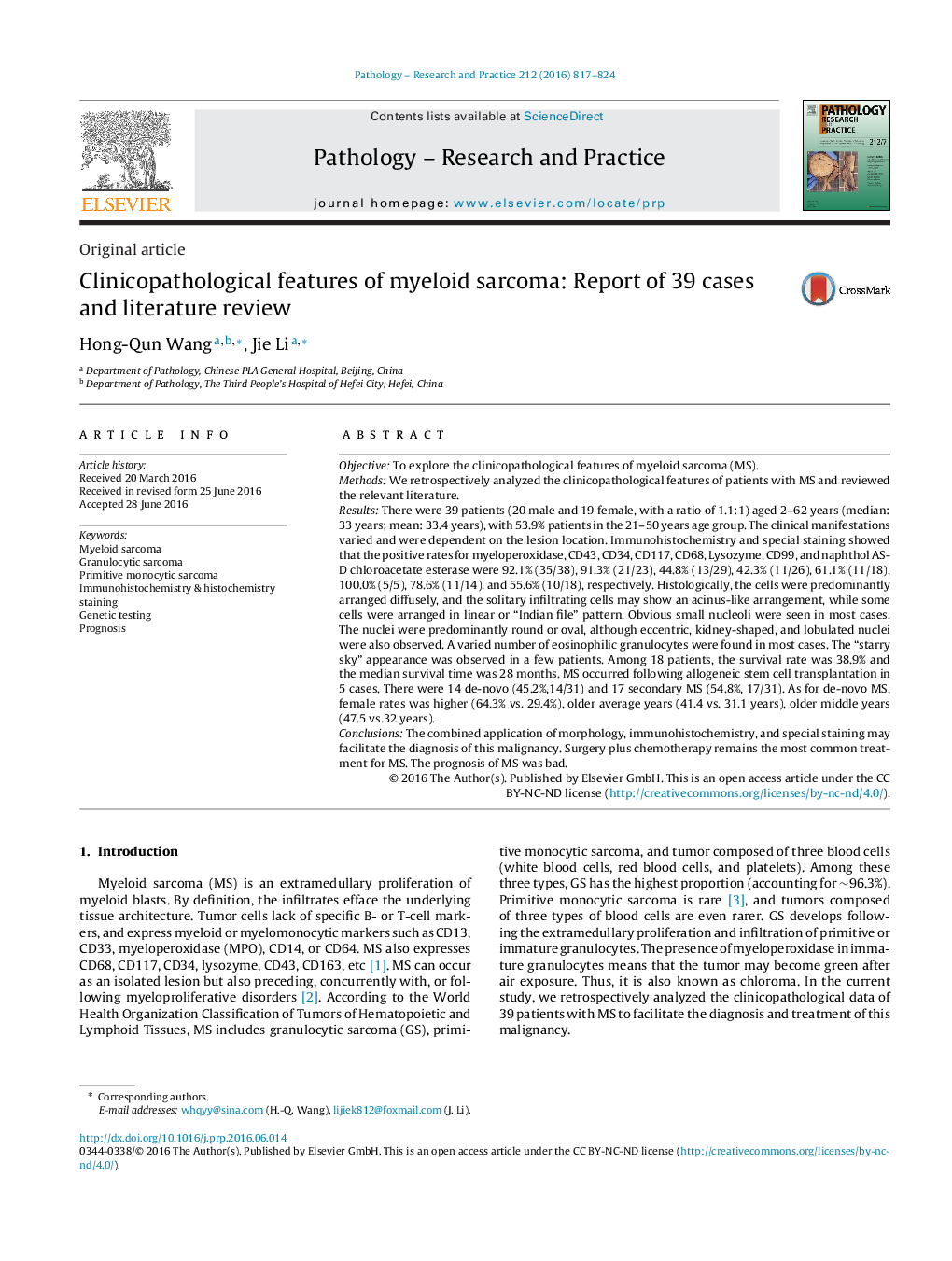| Article ID | Journal | Published Year | Pages | File Type |
|---|---|---|---|---|
| 5529415 | Pathology - Research and Practice | 2016 | 8 Pages |
ObjectiveTo explore the clinicopathological features of myeloid sarcoma (MS).MethodsWe retrospectively analyzed the clinicopathological features of patients with MS and reviewed the relevant literature.ResultsThere were 39 patients (20 male and 19 female, with a ratio of 1.1:1) aged 2-62 years (median: 33 years; mean: 33.4 years), with 53.9% patients in the 21-50 years age group. The clinical manifestations varied and were dependent on the lesion location. Immunohistochemistry and special staining showed that the positive rates for myeloperoxidase, CD43, CD34, CD117, CD68, Lysozyme, CD99, and naphthol AS-D chloroacetate esterase were 92.1% (35/38), 91.3% (21/23), 44.8% (13/29), 42.3% (11/26), 61.1% (11/18), 100.0% (5/5), 78.6% (11/14), and 55.6% (10/18), respectively. Histologically, the cells were predominantly arranged diffusely, and the solitary infiltrating cells may show an acinus-like arrangement, while some cells were arranged in linear or “Indian file” pattern. Obvious small nucleoli were seen in most cases. The nuclei were predominantly round or oval, although eccentric, kidney-shaped, and lobulated nuclei were also observed. A varied number of eosinophilic granulocytes were found in most cases. The “starry sky” appearance was observed in a few patients. Among 18 patients, the survival rate was 38.9% and the median survival time was 28 months. MS occurred following allogeneic stem cell transplantation in 5 cases. There were 14 de-novo (45.2%,14/31) and 17 secondary MS (54.8%, 17/31). As for de-novo MS, female rates was higher (64.3% vs. 29.4%), older average years (41.4 vs. 31.1 years), older middle years (47.5 vs.32 years).ConclusionsThe combined application of morphology, immunohistochemistry, and special staining may facilitate the diagnosis of this malignancy. Surgery plus chemotherapy remains the most common treatment for MS. The prognosis of MS was bad.
